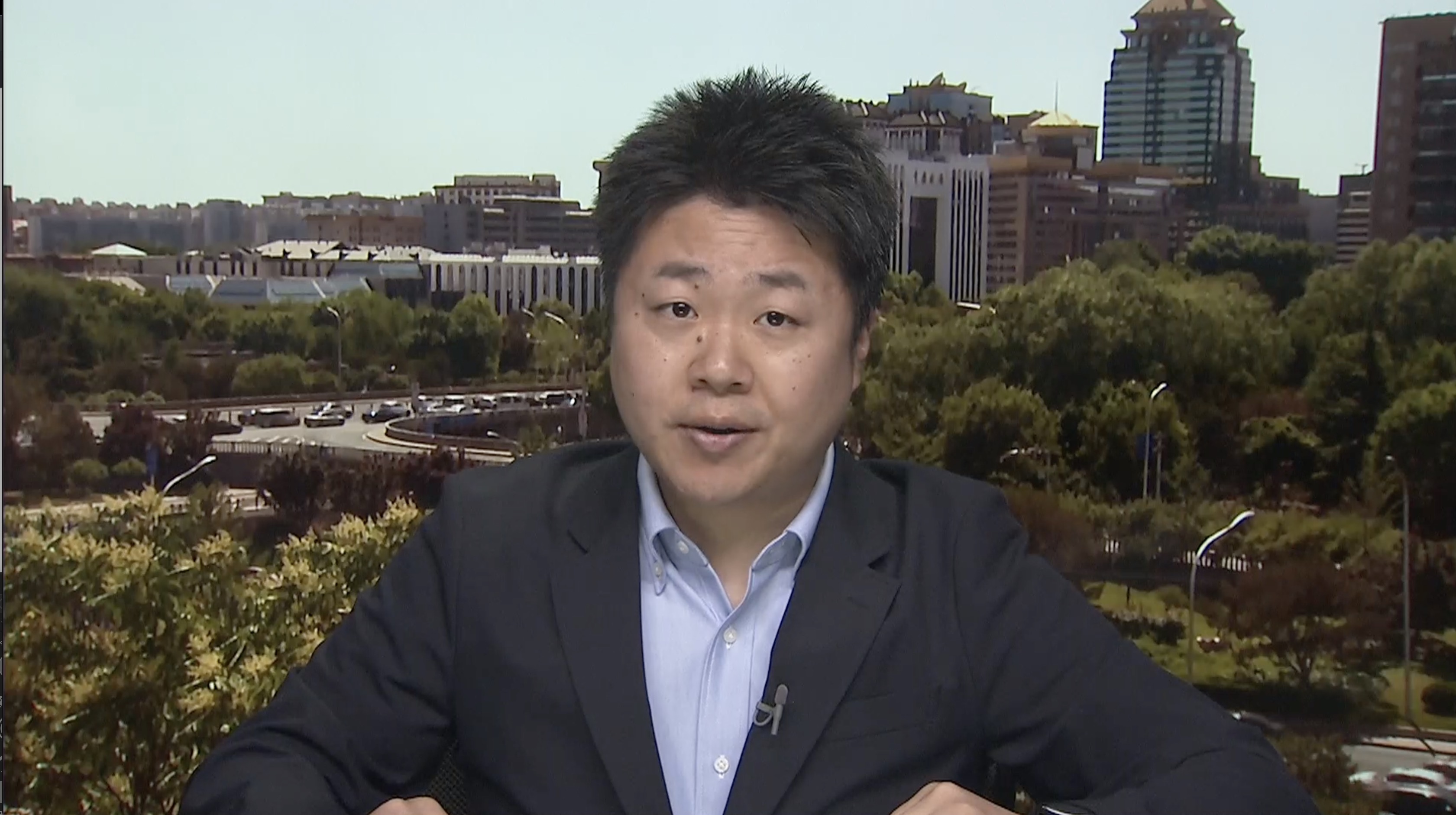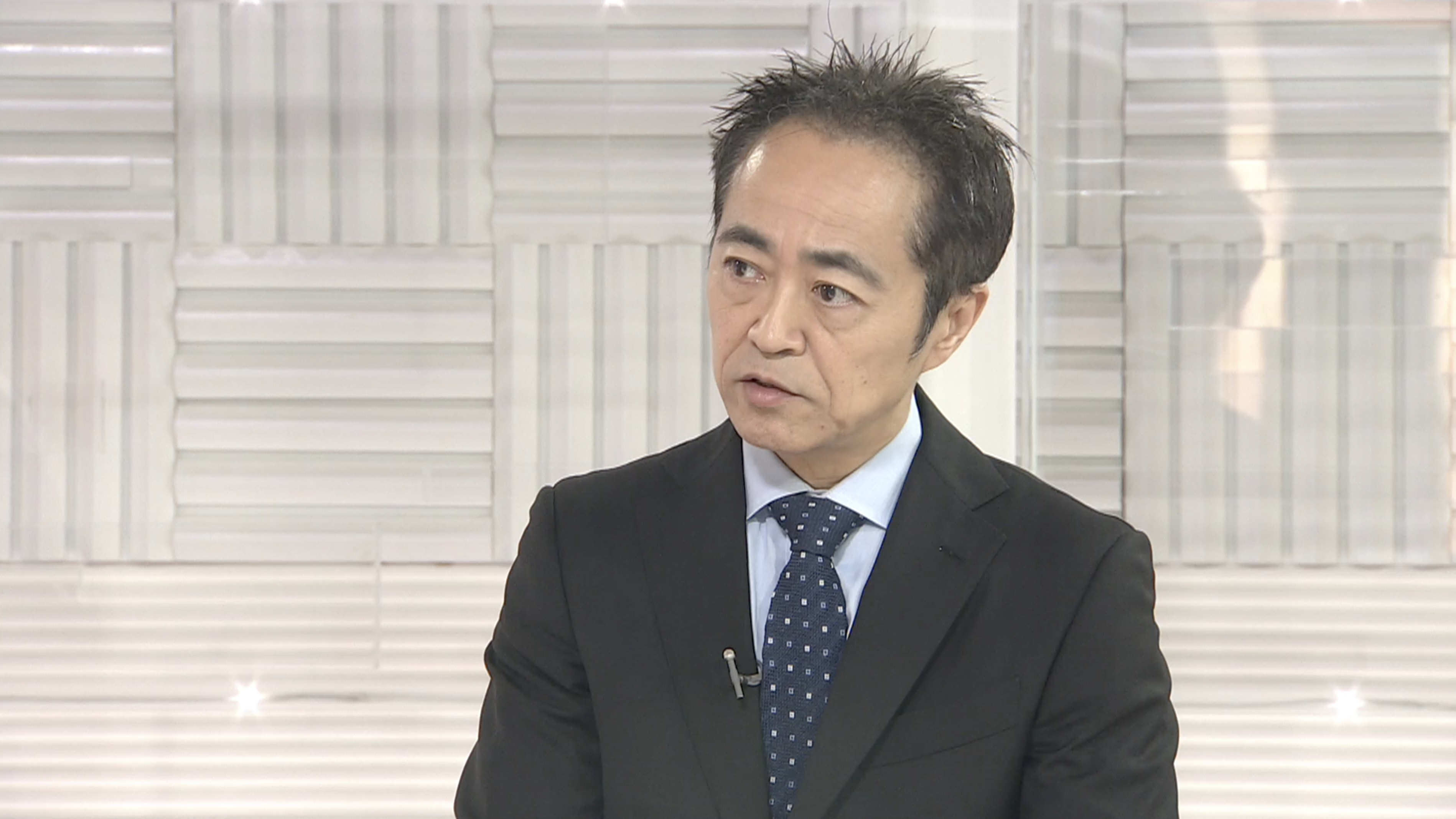Russian President Vladimir Putin and his Chinese counterpart, Xi Jinping, met in Beijing on Thursday. Three NHK World correspondents weigh in on the summit.
The following analysis is from NHK World’s senior commentator and Russian politics expert, Amma Hideo.
The summit is a sign of the importance that Russia places on its relations with China. Asked by Xinhua News Agency why he had decided to visit this time, Putin described the ties between Moscow and Beijing as an “unprecedented level of strategic partnership.”
In March last year, Chinese leader Xi Jinping entered his third term as president, and it was Russia that he visited first. Putin’s visit is meant to return the favor.
The Russian president has been to China many times, but holding summits immediately after each leader took office is meant to demonstrate the close ties between the two countries — at home and abroad.
In Putin’s view, the most important aspect of this “strategic partnership” is to unite with China against Washington and what Beijing and Moscow consider to be its unilateralism and hegemonic approach.
With an eye on the prolonged conflict in Ukraine, the recent Cabinet shakeup for Putin’s fifth term lays out a plan to strengthen the country’s wartime system by promoting economic and military cooperation.
It is significant that Defense Minister Sergei Shoigu was effectively dismissed and replaced by Andrey Belousov, who was first deputy prime minister in charge of economic affairs.
For Russia, China is the most important trade partner amid the West’s severe economic sanctions. Even though it is difficult for China to provide weapons to Russia, it can supply goods, including high-tech parts. The US is concerned by this and accuses China of providing technology that can also be used for military purposes.
However, Russia’s economy is one-tenth the size of China’s. If too much economic reliance develops, Moscow could end up becoming just a junior partner to Beijing. The challenge is whether Russia can continue on an equal footing with China while bolstering bilateral ties.
Watch video: Analysis of Putin visit
Putin’s visit will be a test for Beijing
The following is NHK World’s China correspondent Nakamura Genta’s analysis of Beijing’s perspective on the Putin visit.
I think China hopes to counter the US by confirming its unity with Russia. Putin’s latest visit comes on the heels of Xi’s three-nation European tour.
In Paris, Xi met with French President Emmanuel Macron, who is a champion of Europe’s “strategic autonomy” concept. He then visited Serbia and Hungary, which are deepening relations with China through its Belt and Road initiative. Both of these moves can be seen as attempts to bring European countries into the fold in opposition to the US.
About a year after the invasion of Ukraine, Xi chose to visit Russia first after embarking on an unprecedented third term as president and general secretary of the Chinese Communist Party. Both countries are increasingly at odds with the US. The two leaders are likely to use the meeting to reiterate their strong ties.

I think Beijing is well aware that this could be a double-edged sword, as their close economic partnership has come under scrutiny in the West.
China has benefited from cheap Russian energy imports and access to its vast natural resources, including steady gas shipments via the Power of Siberia pipeline. However, Washington has recently vowed to go after financial institutions that help Moscow fund the Ukraine conflict. Some Russian media have since reported that several Chinese banks have halted or slowed transactions with their Russian clients.
One expert told me that the banks may be taking orders from Chinese officials ahead of this year’s US presidential election.
The two countries, the world’s largest economies, have gradually resumed dialogue in recent months after years of arguing over trade, technology and other issues. Beijing may have directed the banks to scrutinize transactions with Russia to ensure they do not create “a wedge issue in the US election.”
But stronger China ties are likely to be high on Putin’s agenda in Beijing as the West continues its moves to shut out Russia. Beijing, however, may also be worried that getting too close to Moscow could lead to further sanctions against Chinese entities by the US and Europe. Putin’s visit is likely to test the boundaries of Beijing’s good will.
Watch video: What’s behind Putin’s trip to China?
Tokyo, Washington watch China-Russia summit closely
The following is an analysis by NHK World’s International Politics Commentator Hanazawa Yuichiro of the perspective of Japan and the US.
The growing China-Russia cooperation is of great concern for Japan. Relations with Beijing have soured over several issues such as the Senkaku Islands. Japan controls the area and maintains that the islands are an inherent part of its territory. China and Taiwan claim them. Since the invasion of Ukraine, Japan has been taking a tough stance on Russia and has stepped up its support for Kyiv, leading to anger from the Kremlin. China and Russia have repeatedly conducted joint military drills and other activities around Japan, pressuring the country.

Former Prime Minister Abe Shinzo told me just before his death that he had negotiated with Russia about the Northern Territories, hoping to dent Russian and Chinese solidarity by stabilizing relations with Russia. The Japanese government is monitoring the extent of this entente.
The US also wants to avoid a West versus China and Russia situation. US Director of National Intelligence Avril Haines expressed a strong sense of caution this month about possible Russian support for an invasion of Taiwan, which would only add to the burden for the US military.
Partly because of this, Washington has repeatedly pressured Beijing not to support the invasion of Ukraine. It is also calling on countries to restrict exports of cutting-edge technologies such as semiconductors and to restructure supply chains to avoid reliance on China.
US and China tensions are heating up in various aspects, but Washington faces the difficult challenge of not driving China closer to the Russian side.
At the same time, China seems to be trying to avoid projecting the view that it is completely united with Russia. Earlier this year, President Xi Jinping as well as Foreign Minister Wang Yi and Premier Li Qiang visited Europe, hoping to sideline the US and deepen economic cooperation. But he also wants to avoid open confrontation given the weakness of the Chinese economy.
Washington is trying to prevent European nations from cozying up to China by highlighting its ties with Russia.
The summit will be an important opportunity to evaluate the effects of the US strategy. Both Tokyo and Washington are watching closely.

